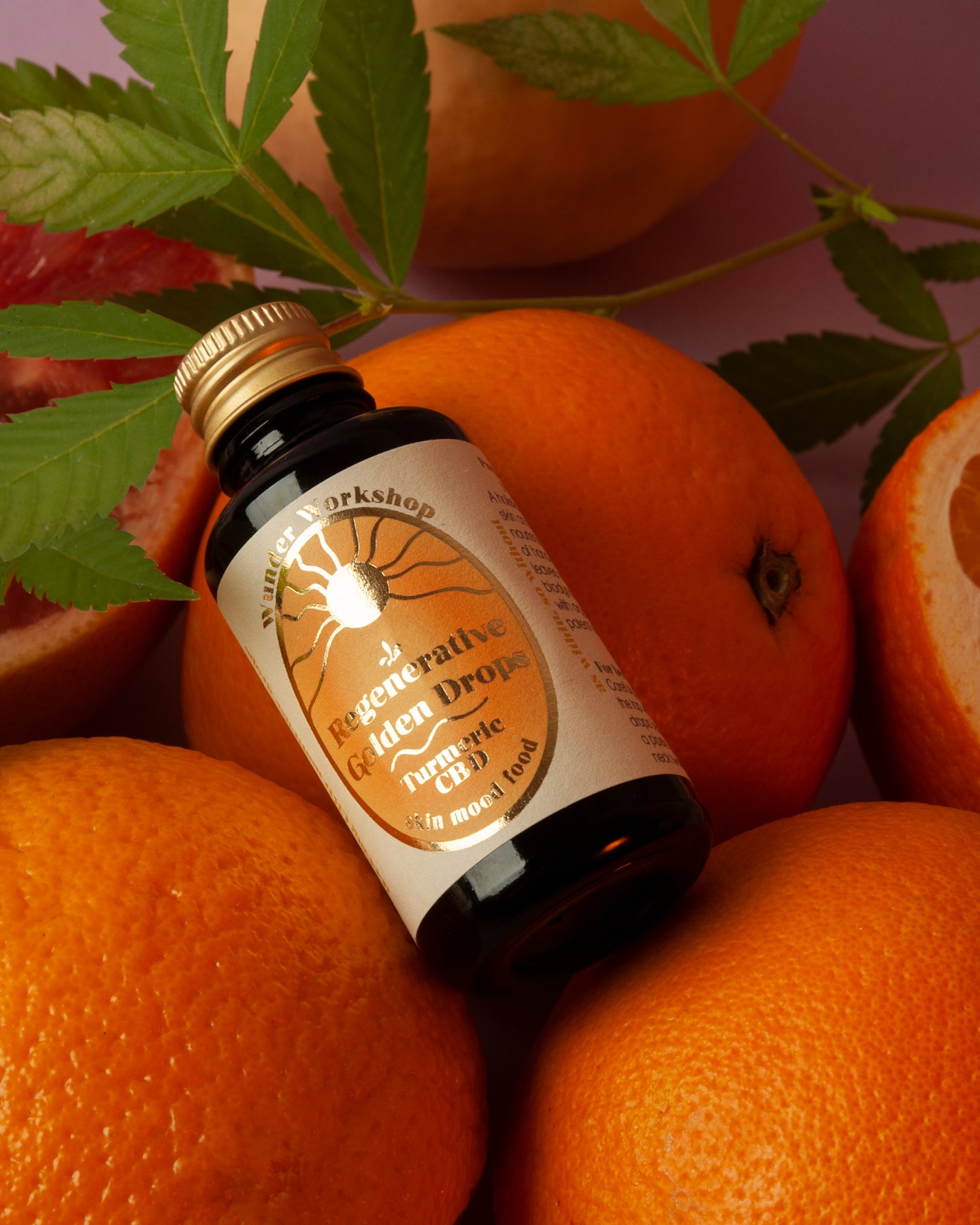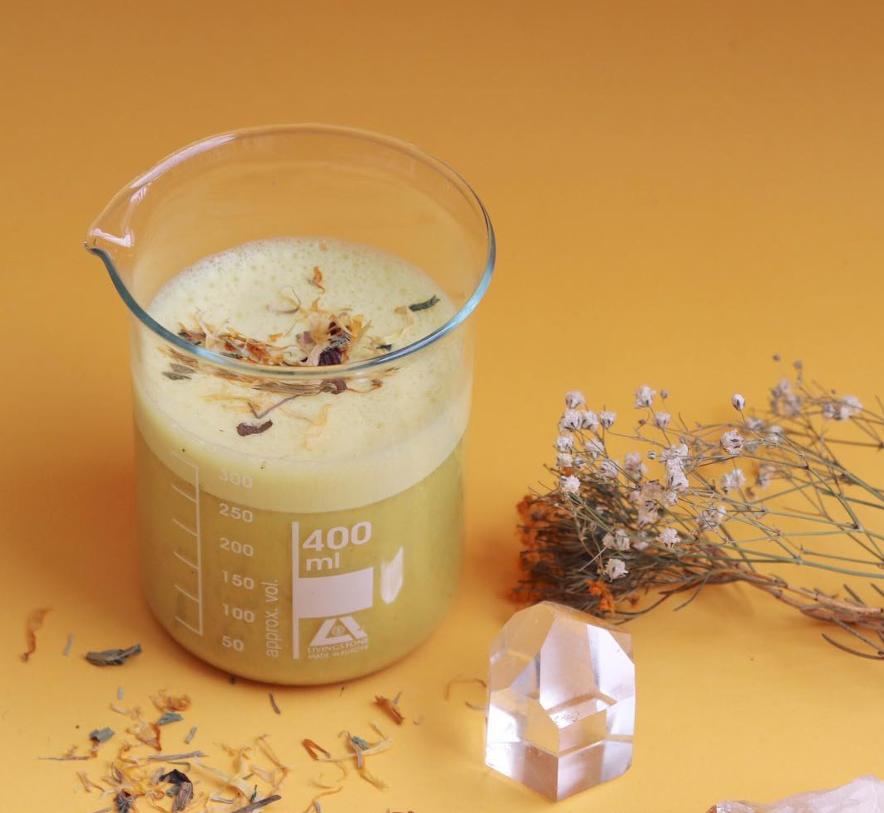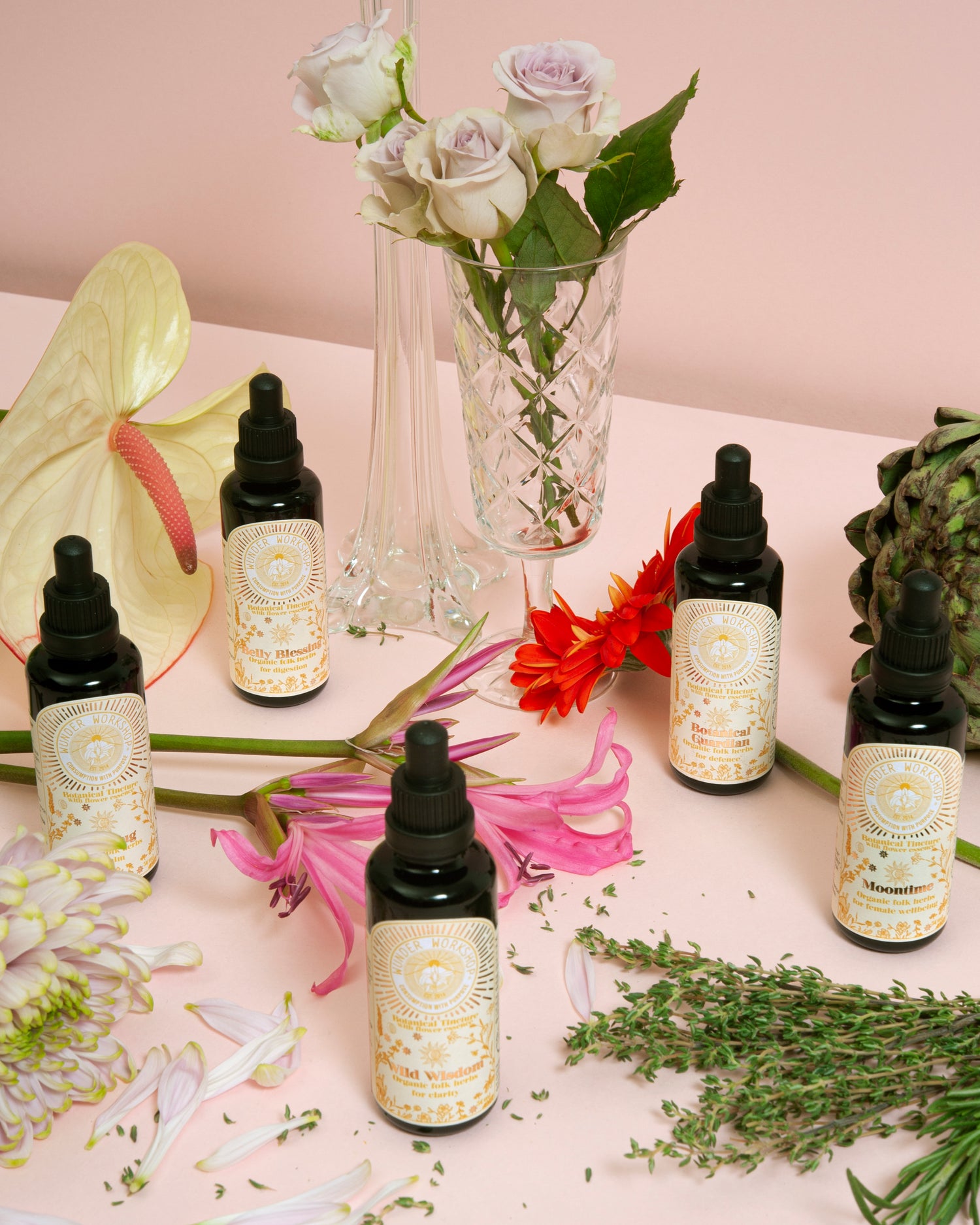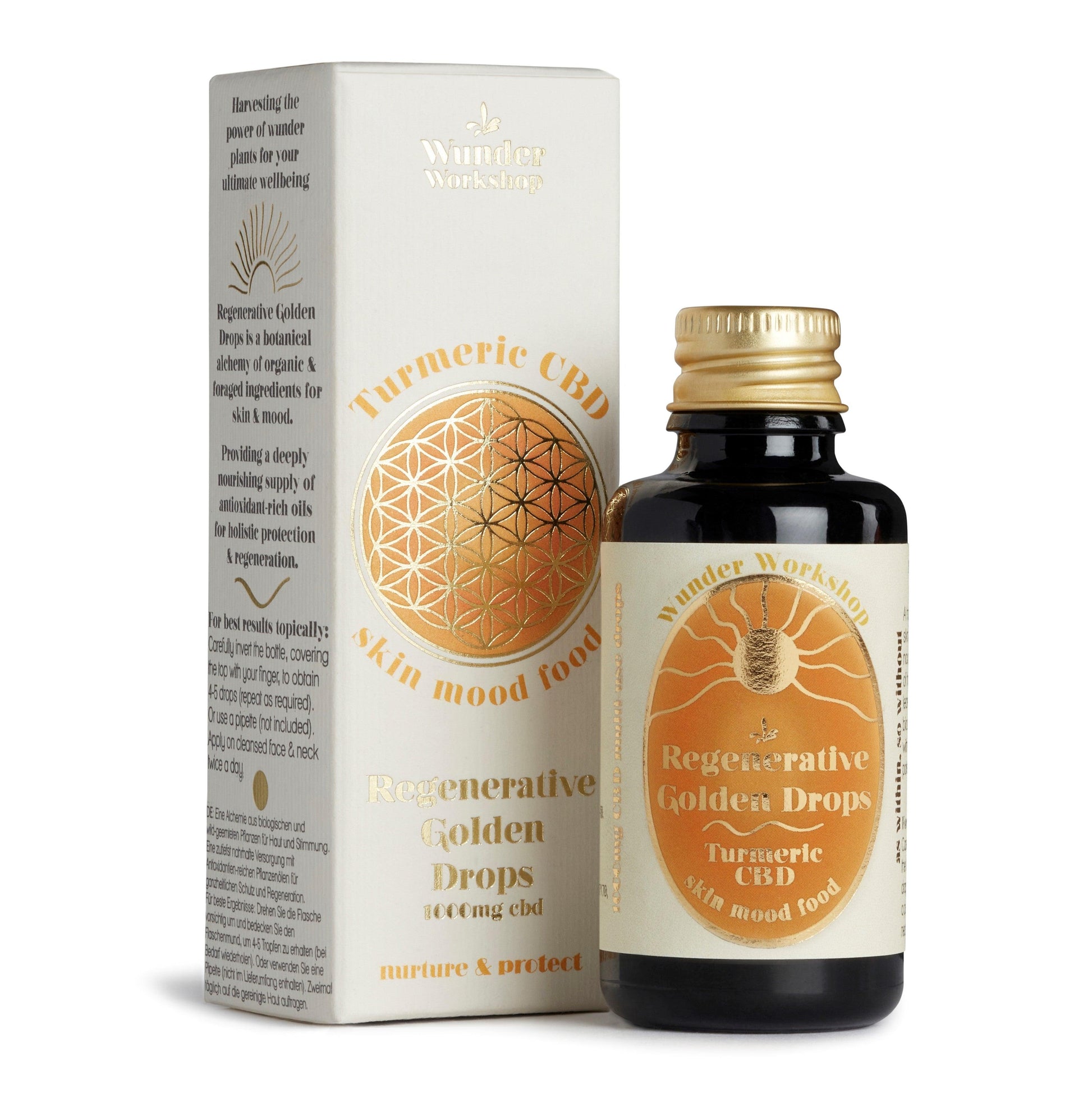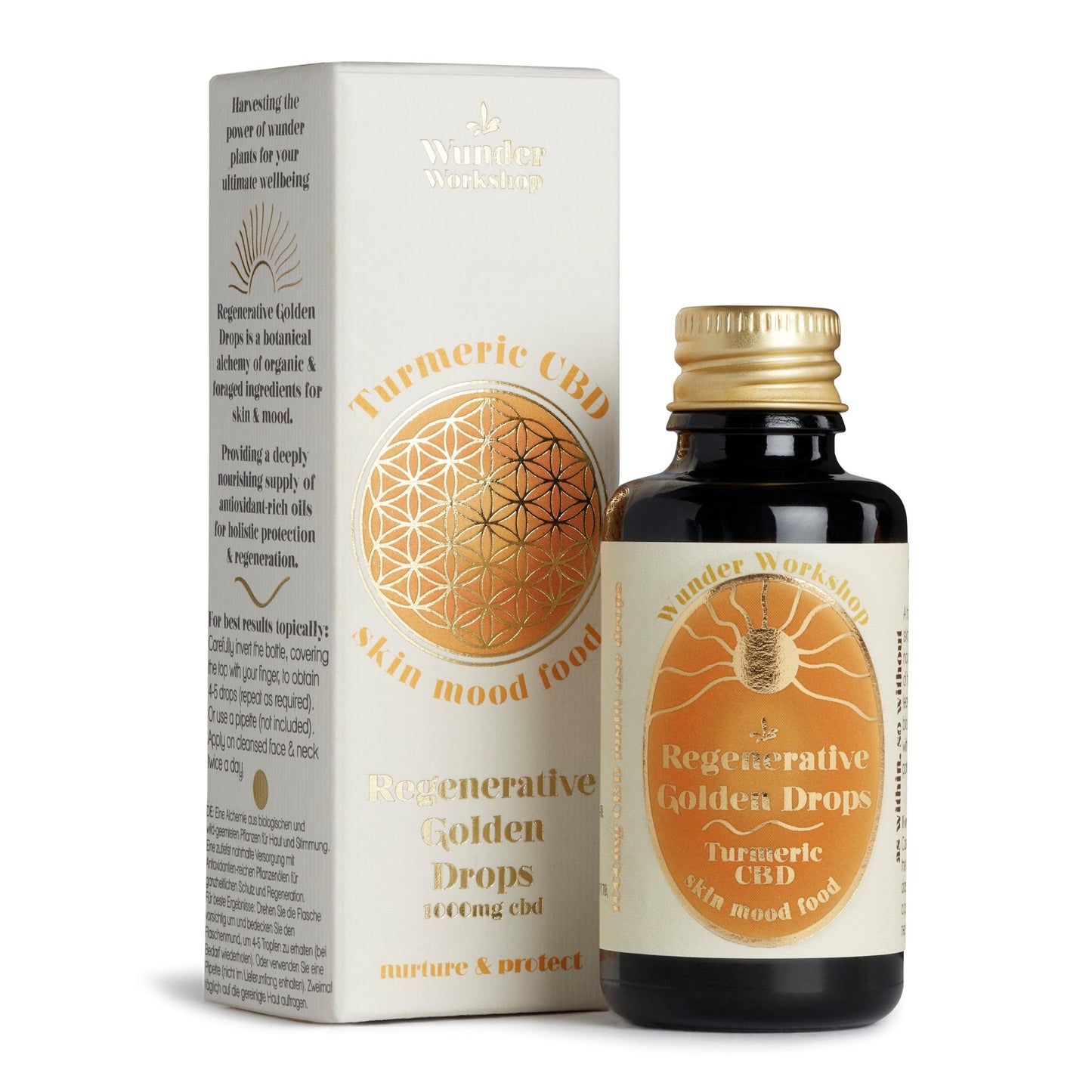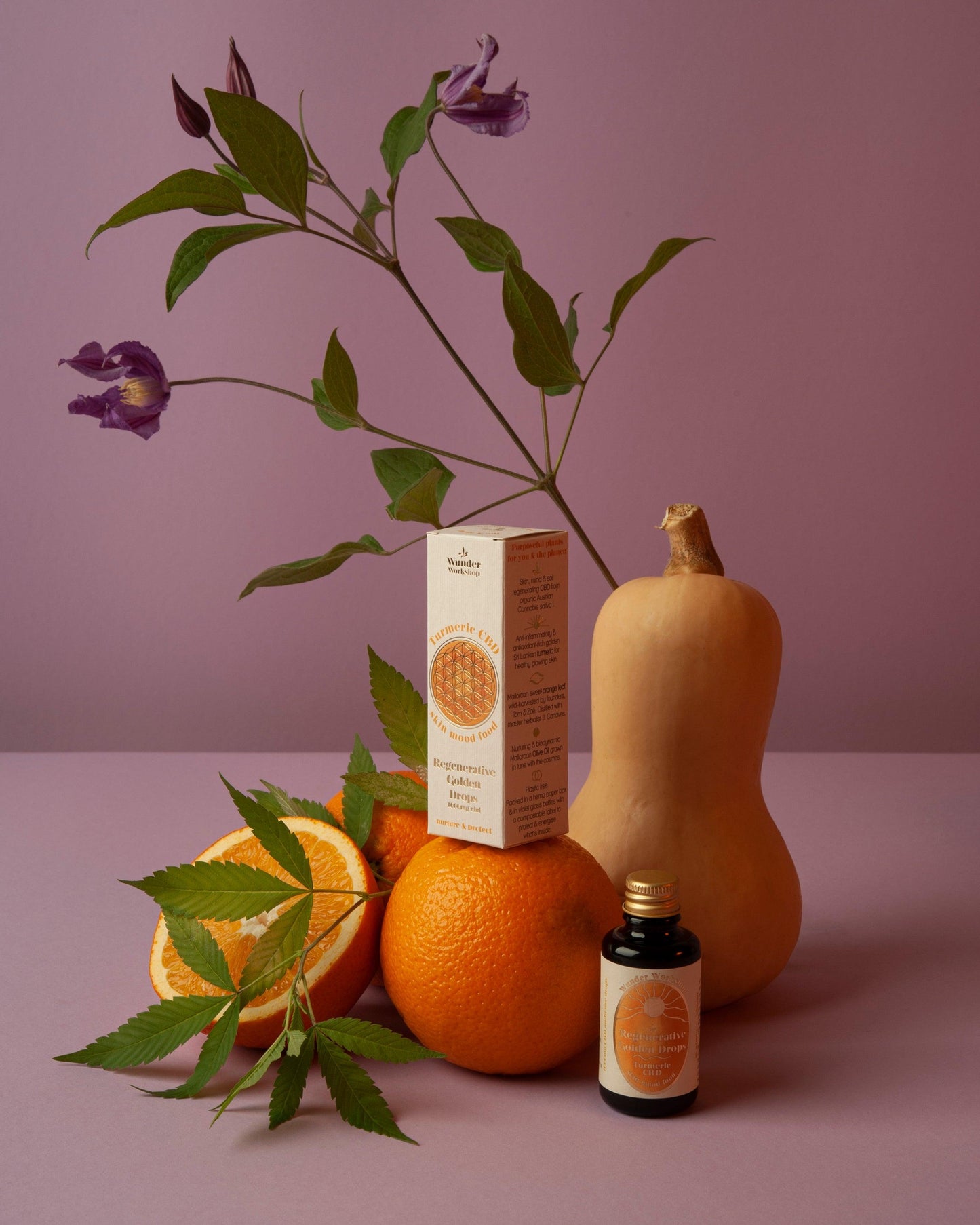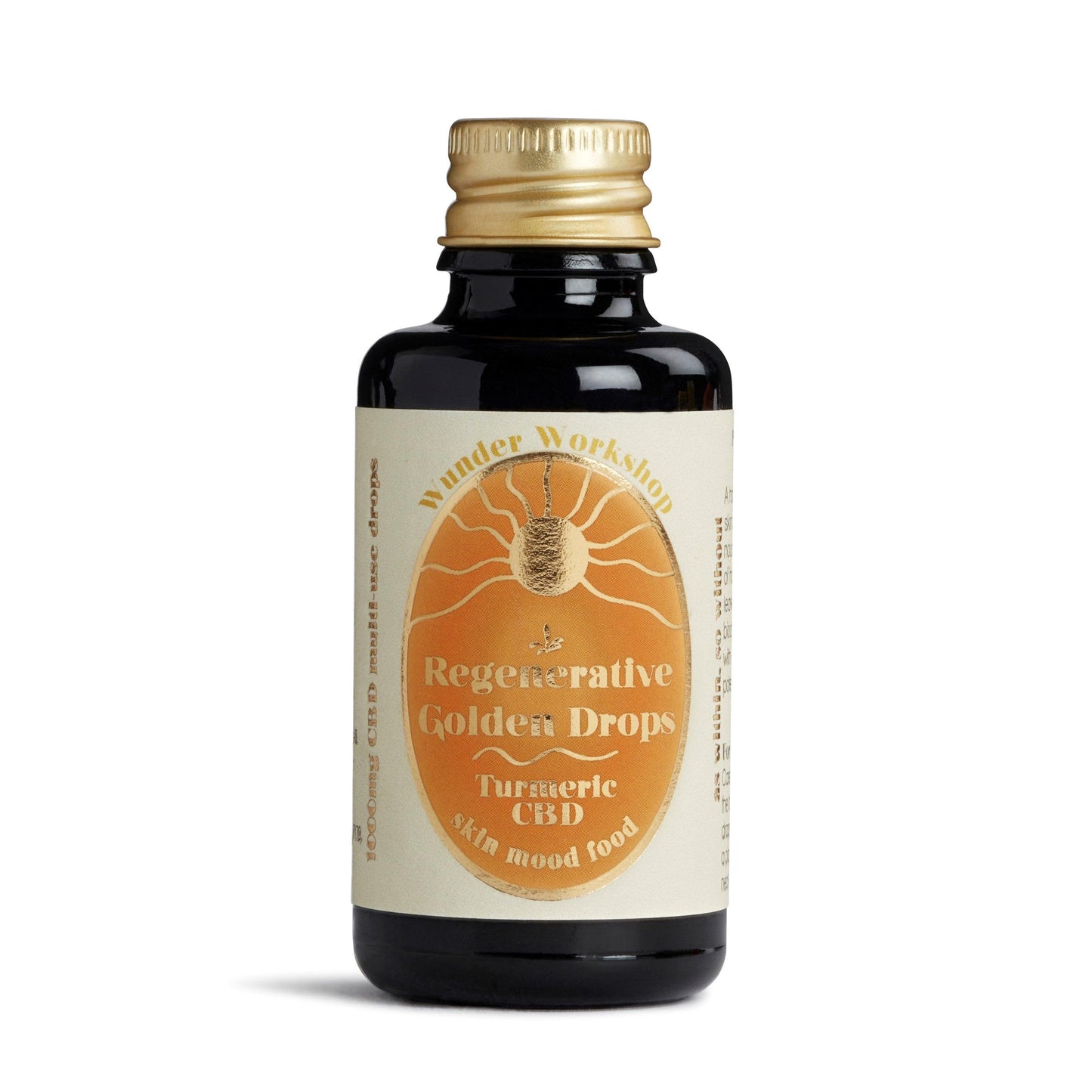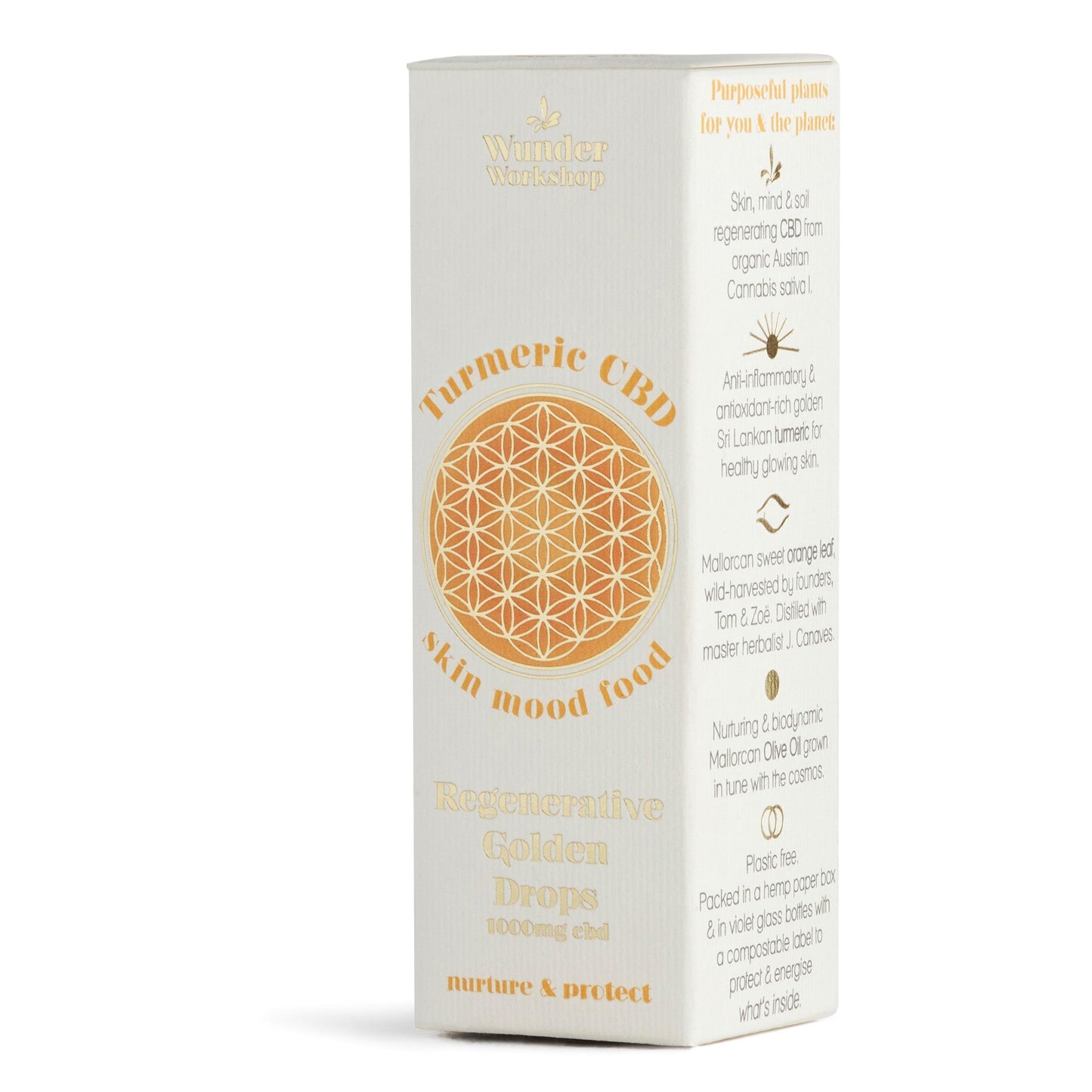
Our skin is a reflection of our overall health and well-being. It can show us where we are feeling blocked or in need of care. Our skin, however, can be unforgiving and show the world that we've been lacking too.
People have been consuming herbs for thousands of years to improve our skin's health and appearance, and using them topically too. Of course, nature offers a treasure trove of herbs that can support and enhance our skin's appearance. In this article, we will explore a handful of scientifically-backed herbs that can contribute to healthy, radiant skin. So, let's delve into the world of botanical beauty and discover how these herbs work their magic!
1. Turmeric (Curcuma longa):
Turmeric, the vibrant yellow spice that caught Wunder Workshop's imagination back in 2013, has been revered for centuries in Ayurvedic medicine for its potent anti-inflammatory and antioxidant properties. Curcumin, which is just one of many active compounds in turmeric, has been shown to exhibit various benefits for the skin.

Studies suggest that curcumin can help reduce inflammation, combat oxidative stress, and promote collagen synthesis, which contributes to improved skin elasticity and overall appearance (Vaughn et al., 2016). It is also a spice that can be easily incorporated into any daily wellness routine, either in a tea or latte, but also in plenty of delicious meals.
We have also written an article on how to use turmeric topically for your skin - check it out HERE.
2. Aloe Vera (Aloe barbadensis):
Aloe vera, often referred to as the "plant of immortality," has been used for centuries for its soothing and healing properties. Aloe's fronds are filled with a thick mucilagious fluid that keeps it hydrated in the dry climates it thrives in. It has been used traditionally for these cooling and hydrating properties.
Scientific research has also highlighted the potential benefits of aloe vera for the skin - a study published in the Journal of Dermatological Treatment found that topical application of aloe vera gel improved skin hydration, reduced the appearance of wrinkles, and enhanced the production of collagen and elastin (Surjushe et al., 2008). Aloe vera's bioactive compounds, such as polysaccharides and antioxidants, are believed to contribute to its skin-enhancing effects.
3. Chaga Mushroom (Inonotus obliquus):
Chaga mushroom, a medicinal fungus that grows on birch trees in cold climates, has been used for centuries in traditional medicine for its health-promoting properties, in particular for skin health. This is because it has a potent antioxidant effect and can protect against UV-induced cell damage!
Chaga mushroom is rich in antioxidants, including phenolic compounds and polysaccharides, which can help combat oxidative stress and inflammation in the body. By reducing oxidative damage and inflammation, Chaga mushroom may contribute to a healthier complexion and a more even skin tone.
Exposure to ultraviolet (UV) radiation from the sun can lead to skin damage and premature aging. Chaga mushroom contains melanin, a natural pigment that offers some protection against UV radiation. Additionally, studies have suggested that Chaga mushroom extracts may help inhibit the production of matrix metalloproteinases (MMPs), enzymes involved in collagen degradation triggered by UV radiation (Lee et al., 2009). This suggests that Chaga mushroom may have potential photoprotective properties, helping to shield the skin from UV-induced damage.
Keeping hydrated and nourishing a strong skin barrier are crucial for maintaining healthy skin. Chaga mushroom is believed to possess moisturizing properties, which can help improve skin hydration and prevent moisture loss. This can contribute to improved skin elasticity and a smoother complexion.
What's the best way to consume Chaga? Well, the traditional way, in a tea: a teaspoon of Superior Chaga extract powder and hot water.
4. Calendula (Calendula officinalis):
Calendula, also known as marigold, has been used in traditional medicine for its soothing and healing properties as well. Research suggests that calendula extracts possess anti-inflammatory, antimicrobial, and wound-healing properties, making it beneficial for various skin conditions and it is used both topically and internally. A study published in the Journal of Clinical and Aesthetic Dermatology demonstrated that calendula ointment was effective in promoting wound healing and reducing inflammation (Pommier et al., 2004). Calendula's flavonoids and triterpenoids are believed to contribute to its skin-protective and healing properties.
5. Rosemary (Rosmarinus officinalis):
Rosemary, an aromatic herb which is often overlooked as a powerful healing herb, holds promise for enhancing skin health. Scientific studies have demonstrated the antioxidant and anti-inflammatory effects of rosemary extract. A research article published in the International Journal of Molecular Sciences highlighted rosemary's potential in protecting the skin against UV-induced damage, reducing inflammation, and promoting collagen synthesis (González-Vallinas et al., 2015). The phytochemicals present in rosemary, such as rosmarinic acid and carnosic acid, are believed to contribute to its skin-boosting properties.
You will also find that rosemary is a mind-awakening herb, used to help boost brain function. We use it in our Wild Wisdom tincture as an easy way to find focus in our day to day!
6. Maca (Lepidium meyenii):
Maca, a root vegetable native to the Peruvian Andes, has gained popularity for its health benefits, including its positive impact on skin health. There are several properties of this adaptogenic herb that suggest benefits for skin health. The first is hormonal balance, where Maca is known to support hormonal balance in the body. Hormonal imbalances can often manifest as skin issues, such as acne or dryness. By promoting hormonal equilibrium, Maca may indirectly contribute to healthier and clearer skin.

Secondly, maca can stimulate collagen production - Collagen is a vital protein that provides structure and elasticity to the skin. As we age, collagen production naturally declines, leading to wrinkles and sagging skin. Maca has been suggested to support collagen synthesis and enhance the production of elastin, another protein responsible for skin elasticity. By promoting collagen production, Maca may help improve skin firmness and reduce the appearance of fine lines and wrinkles.
Maca forms an integral part of our Golden Glow adaptogen blend, that is an alchemy of herbs designed to light your spark from within - improving both your mind and nourishing your skin.
However you choose to support your skin, know that there are herbs to help you. Our skin's appearance is influenced by many factors, the best care that you can take is to support your overall wellbeing. Keep a regular sleep pattern and nourish yourself with vibrant foods. Know that in times of need you can also embrace the gifts of nature and let these botanical beauties nurture your skin, revealing your natural radiance.
References:
1. Vaughn, A. R., et al. (2016). Effects of turmeric (Curcuma longa) on skin health: A systematic review of the clinical evidence. Phytotherapy Research, 30(8), 1243-1264.
2. Surjushe, A., et al. (2008). Aloe vera: A short review. Indian Journal of Dermatology, 53(4), 163-166.
3. Pommier, P., et al. (2004). Phase III randomized trial of Calendula officinalis compared with trolamine for the prevention of acute dermatitis during irradiation for breast cancer. Journal of Clinical Oncology, 22(8), 1447-1453.
4. Katiyar, S. K. (2011). Green tea prevents non-melanoma skin cancer by enhancing DNA repair. Archives of Biochemistry and Biophysics, 508(2), 152-158.
5. González-Vallinas, M., et al. (2015). Antitumor effects of dietary phytochemicals and their chemopreventive implications in colorectal cancer. International Journal of Molecular Sciences, 16(1), 1098-1113.
6. Gonzales, G. F. (2012). Ethnobiology and Ethnopharmacology of Lepidium meyenii (Maca), a Plant from the Peruvian Highlands. Evidence-Based Complementary and Alternative Medicine, 2012, 193496.
7. Dording, C. M., et al. (2015). A Double-Blind, Randomized, Pilot Dose-Finding Study of Maca Root (L. meyenii) for the Management of SSRI-Induced Sexual Dysfunction. CNS Neuroscience & Therapeutics, 21(5), 372-380.
8. Lee, S. Y., et al. (2009). Inhibitory effects of the methanol extract of Inonotus obliquus on mast cell-mediated allergic inflammatory responses. Journal of Ethnopharmacology, 121(2), 272-278.
9. Shikov, A. N., et al. (2014). Medicinal plants of the Russian Pharmacopoeia: Their history and applications. Journal of Ethnopharmacology, 154(3), 481-536.
10. Duru, K. C., et al. (2013). Determination of Chemical Composition of Chaga (Inonotus obliquus) Mushroom Growing on Some Trees. Journal of Food, Agriculture & Environment, 11(2), 266-269


